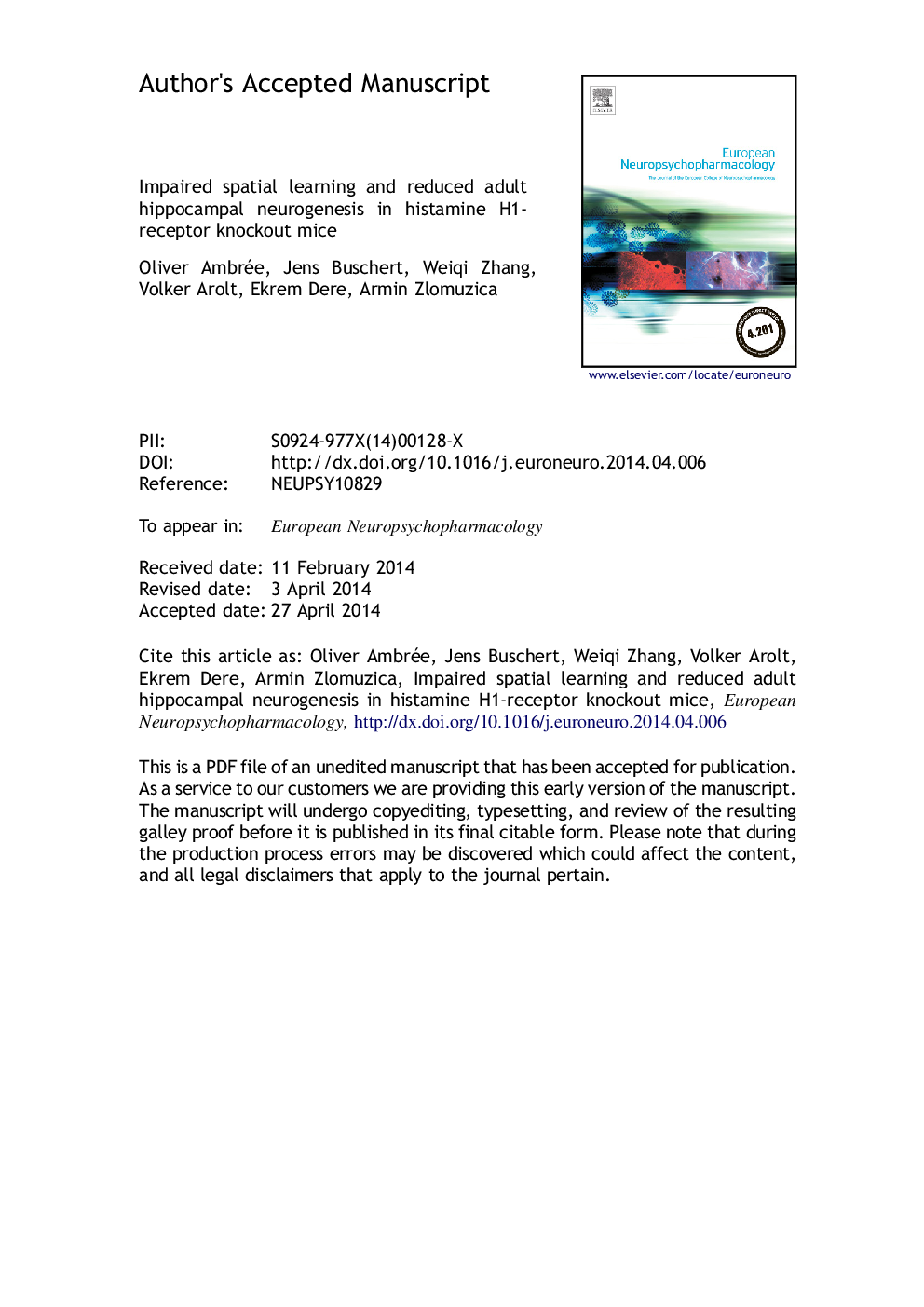| Article ID | Journal | Published Year | Pages | File Type |
|---|---|---|---|---|
| 10299214 | European Neuropsychopharmacology | 2014 | 31 Pages |
Abstract
The histamine H1-receptor (H1R) is expressed in wide parts of the brain including the hippocampus, which is involved in spatial learning and memory. Previous studies in H1R knockout (H1R-KO) mice revealed deficits in a variety of learning and memory tasks. It was also proposed that H1R activation is crucial for neuronal differentiation of neural progenitors. Therefore, the aim of this study was to investigate negatively reinforced spatial learning in the water-maze and to assess survival and neuronal differentiation of newborn cells in the adult hippocampus of H1R-KO mice. H1R-KO and wild-type (WT) mice were subjected to the following sequence of tests: (a) cued version, (b) place learning, (c) spatial probe, (d) long-term retention and (e) reversal learning. Furthermore hippocampal neurogenesis in terms of survival and differentiation was assessed in H1R-KO and WT mice. H1R-KO mice showed normal cued learning, but impaired place and reversal learning as well as impaired long-term retention performance. In addition, a marked reduction of newborn neurons in the hippocampus but no changes in differentiation of neural progenitors into neuronal and glial lineage was found in H1R-KO mice. Our data suggest that H1R deficiency in mice is associated with pronounced deficits in hippocampus-dependent spatial learning and memory. Furthermore, we herein provide first evidence that H1R deficiency in the mouse leads to a reduced neurogenesis. However, the exact mechanisms for the reduced number of cells in H1R-KO mice remain elusive and might be due to a reduced survival of newborn hippocampal neurons and/or a reduction in cell proliferation.
Related Topics
Life Sciences
Neuroscience
Biological Psychiatry
Authors
Oliver Ambrée, Jens Buschert, Weiqi Zhang, Volker Arolt, Ekrem Dere, Armin Zlomuzica,
